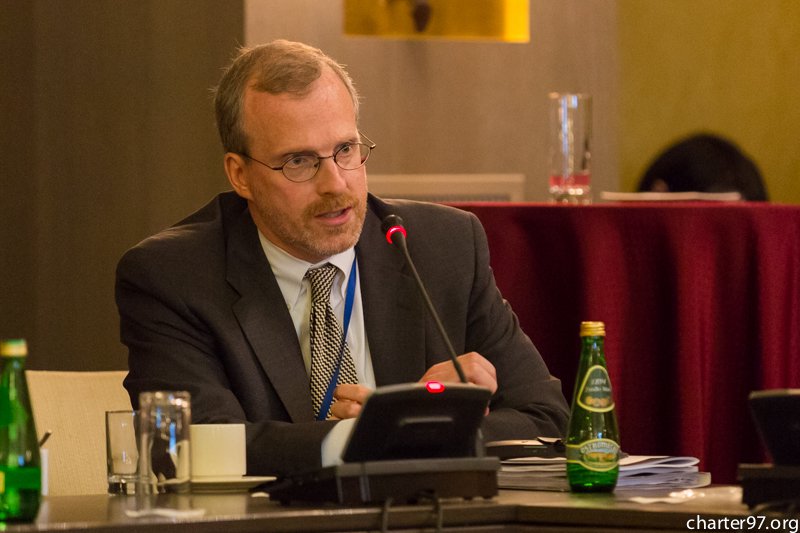Belarus needs a 'list of Zakharenko, Gonchar, Krasovski and Zavadski"
- 27.09.2015, 18:57
- 6,366
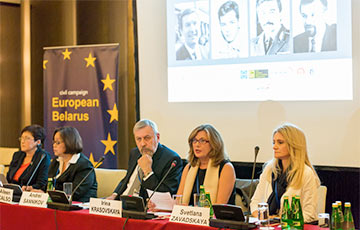
Abductions and killings of opposition leaders in Belarus were discussed at the OSCE conference in Warsaw.
A working meeting entitled "Abduction: Put an End to Impunity" was held on September 24. It was organized by the civil campaign "European Belarus" supported by the German Marshall Fund, Fund of international solidarity, the Helsinki Foundation for Human Rights (Poland), Belarusian Documentation Center, "We Remember" Foundation, International Coalition against Enforced Disappearances, the Asian Federation against Involuntary Disappearances (AFAD).
The working meeting was attended by the coordinator of the civil campaign European Belarus, Andrei Sannikov, who was its moderator, general secretary of the Asian Federation against Involuntary Disappearances Mary Aileen Bacalso, wife of the abducted in 1999 businessman Anatoly Krasovsky, Irina Krasovskaya, wife of the abducted in 2000 journalist Dmitry Zavadsky, Svetlana Zavadskaya, head of the center Legal Assistance to Population, Oleg Volchek, Chairwoman of the Belarusian Documentation Center Raisa Mihaylovskaya. It was also attended by the Belarusian and international experts, human rights activists and journalists.
Former political prisoner and presidential candidate in the 2010 elections, Nikolai Statkevich, released a month ago, came to the working meeting straight from the airport.
Andrei Sannikov reminded those present that this year marks 16 years since the disappearance of Yuri Zakharenko, Viktor Gonchar, Anatoly Krasovsky and 15 years - since the abduction of Dmitry Zavadsky. He stressed that the EU should not lift sanctions from the Belarusian regime until these cases are investigated.
"Today, some people see certain improvements that are allegedly taking place in Belarus, he said. But the country has the same regime that is guilty of many crimes, including kidnappings and murders of prominent politicians and public figures. No action to investigate the situation in Belarus was carried out, despite the fact that in 2004 there was a detailed and factual report of the Council of Europe about the involvement of senior officials in involuntary disappearances. Now the list of persons that are subject to the sanctions of the European Union, includes the people suspected of involvement in these crimes. Therefore, it is surprising that today someone is seriously considering the possibility of lifting the restrictive measures from the Belarusian regime."
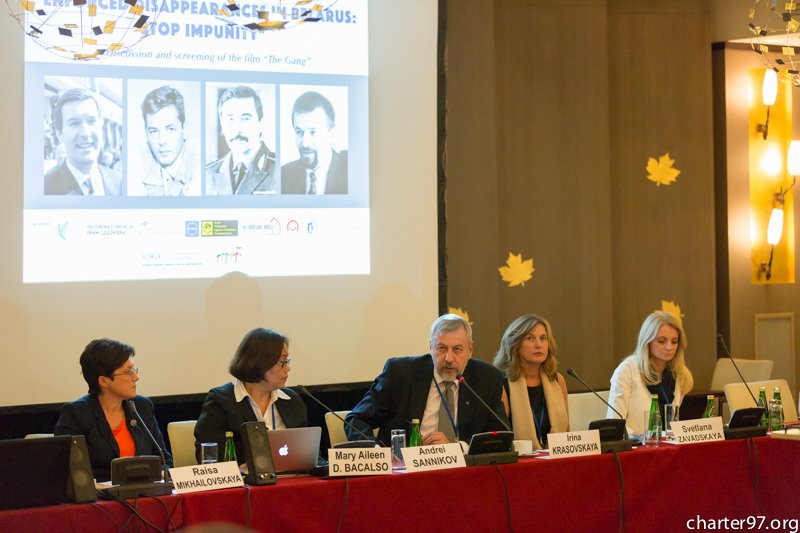
Mary Aileen Bacalso stressed the importance of gathering information on involuntary disappearances to prosecute those responsible in the future.
"There are still involuntary disappearances taking place with impunity in many countries of the world, she said. The perpetrators of these crimes get senior positions. We must not forget about this brutal form of human rights violations. It is important that their relatives, their compatriots did not surrender, did not allow themselves to be victims. It is important to collect information and documentation on such cases to demand their investigation at the regional, national and international levels.
Many countries have succeeded in finding the kidnapped people or punish those who committed these crimes. An important role in this was played by the International Convention for the Protection from Enforced Disappearance, the execution of which is mandatory for countries that have ratified it. This applies to both the investigation of such crimes and to certain rights of the relatives of the kidnapped.
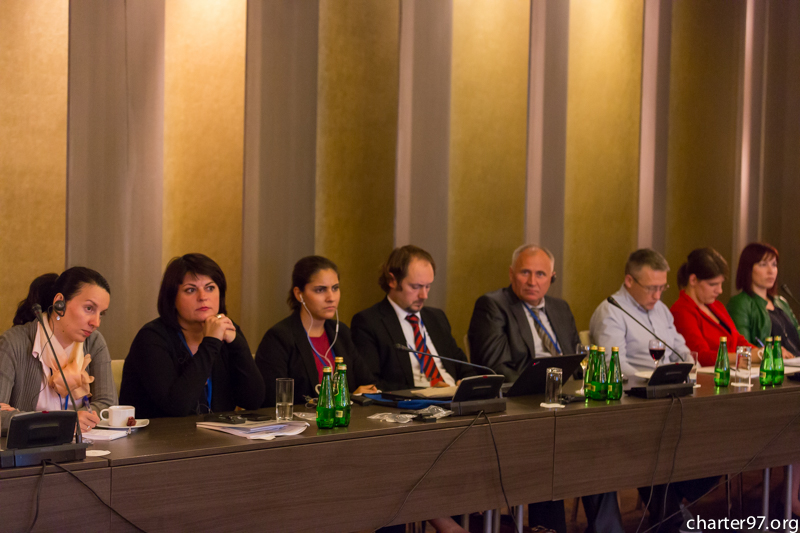
The disappearance of Viktor Gonchar, Yury Zakharenko, Anatoly Krasovsky and Dmitry Zavadsky caused tremendous harm to their families and the Belarusian people. Their abductions are crimes against their loved ones, against society, against all humanity. They were secretly kidnapped and their relatives still cannot get the truth about what happened 16 years ago. Four people were put on the altar of freedom of their country. Their memory will always be with us, including through such activities, which we are witnessing today."
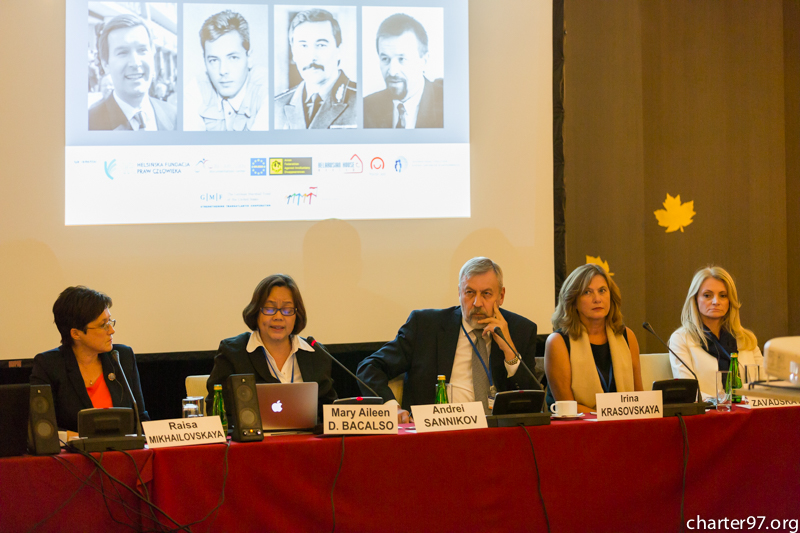
The widow of the businessman abducted in Belarus, Irina Krasovskaya, said that while Lukashenko is in power in the country, cases of enforced disappearance will not be investigated and the perpetrators will walk unpunished.
"Unfortunately, we see less and less attention to this issue in official documents, she said. This topic has somehow disappeared from the list of demands of the UN and the EU to normalize relations with Belarus. Almost all the visitors from the EU did not find time to meet with the families of the disappeared, or even answer our letters.
Are there any means that can make Belarus stop violating the human rights of its own citizens? I posed all of these questions last year. Since then, nothing has changed. Apart from the fact that Lukashenko is going around the world to read a lecture on September 28, during the UN General Assembly in New York, as well as rumors that the European Union plans to lift sanctions against the dictator and two hundred Belarusian officials.
Perhaps now, the question of how many more years can a democratic Europe and the free world tolerate torture, disappearances and other violations of human rights at the center of Europe has become rhetorical. In any case, we will continue our struggle for truth and justice for our families.
Disappearances in Belarus have not been forgotten. They have no statute of limitations. Perhaps we have been repeating our sad story a thousand times. Do you think we like to travel around the world and to repeat our story? No. Because every time we say it, it leaves scars in our heart, our soul. But we want to know the truth and we want to stop impunity and injustice. I believe that next time we will tell you a different ending to our history, and it will be much sooner than in 15 years."
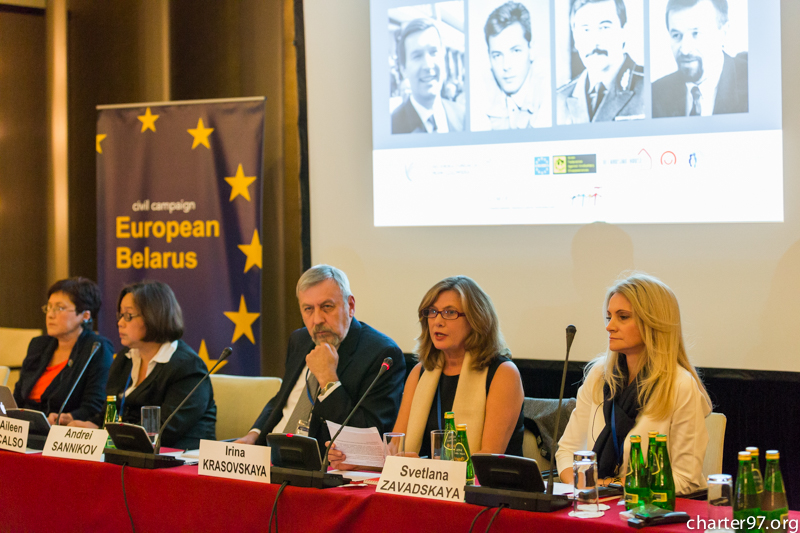
Nikolai Statkevich spoke about the new facts related to the abductions of prominent politicians and public figures in Belarus.
"These murders were committed by the military of the special forces brigade of the Belarus Interior Ministry, he said. The new thing for me was the fact that the performers - soldiers and officers - believed that they were performing a legal verdict. They did not have a legal education. They were shown a paper which said: "The sentence of the Secret Supreme Tribunal of Belarus" and this document condemned to death those whom we see in these photos. The document had a personal seal of Lukashenko. They believed that it was a legitimate verdict. Moreover, they were given a special gun that was used to execute criminals sentenced to death. These soldiers really thought that they were implementing the law court decision.
The question arises how this document got a fake stamp of the president? I recently asked Lukashenko this question publicly, through the media. And there have been no answer, and I do not expect to get it right now, at least until he is serving as president. But the answer is obvious to me. The real killer is not a soldier, but the one who gave the order. And now, of course, the attempts by some colleagues from the European countries to make him a respectable, recognized, legitimate president look strange. I think that such a decision is a blow to the basic norms of morality in the eyes of the Belarusian society. If it is accepted, it will also be to a certain degree criminal."
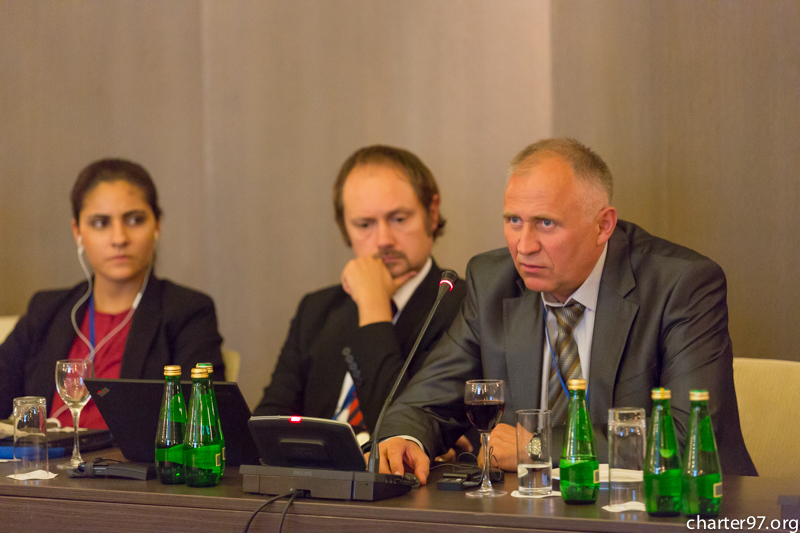
The widow of the kidnapped journalist, Svetlana Zavadskaya, listed leverage on the Belarusian authorities, which may force them to start the investigation of the high-profile disappearances.
"We can demand an international investigation of the missing persons' cases, she said. For this there are appropriate mechanisms. There are forms of international investigation under the UN Security Council. In addition, there is a universal criminal jurisdiction. Legislation of the countries which have ratified international treaties have the appropriate legal instruments in national legislation.
We must draw the attention of the current leaders of the Belarusian law enforcement agencies to the fact that they are responsible for investigating these cases. If we get rejections and formal replies, on the agenda may appear, "a list of Zakharenko, Gonchar, Krasovsky and Zavadsky." This must be followed by new sanctions against those who deliberately put these things to the archive. You understand that I mean the analogy with the "Magnitsky list", which is already in force in respect of a number of Russian officials.
It is important that we now have a final opportunity to put pressure from the side of the international community to influence the situation with the investigation of politically motivated abductions in Belarus. Why do I say this? Because today Belarus is going through a very serious economic crisis, and I am sure that without European loans Lukashenko will not do. Therefore, not only the economic conditions must be a guarantee for these loans, but also political ones. Including the requirement for an independent investigation of politically motivated abductions involving international experts.
In this regard, I would like to appeal once again through you to European leaders and ask them to finally have the will and, despite the political situation, demand the official Minsk to have an independent investigation of the politically motivated kidnappings. What kind of rapprochement between Minsk and Brussels, lifting sanctions against Lukashenko could be discussed? I believe it is a crime to come close to the regime which has behind it a trail of blood."
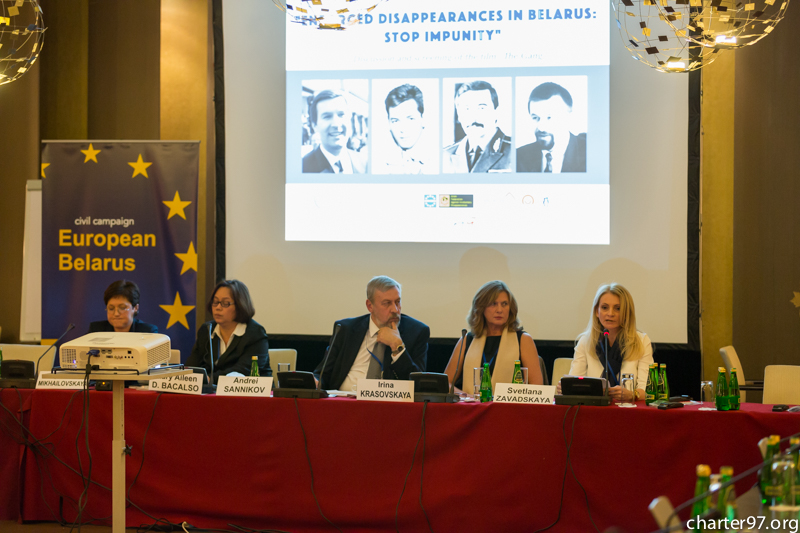
Lawyer Oleg Volchek recalled that how the public launched an independent investigation of high-profile disappearances and its conclusions.
"I am a trustee of the Yuri Zakharenko family. He disappeared on 7 May 1999, we then had the feeling that this was not for long, that within 72 hours the prosecutor would announce his arrest. But three days passed and Nikolai Statkevich met with me, as a former investigator, and said: "I think this could be terrible, it is necessary to create a public commission." On May 10 we began our investigation. The result came on the second day, when we hung up ads, and people tried to find out what had happened with Yuri Zakharenko. There were found five witnesses, who confirmed that he was kidnapped by seven people. At that time there were no foreign cars, but police had Zhiguli with tinted windows. He was taken away in an unknown direction. We passed materials to the operatives, to the investigator Baykova, she was then investigating the case and we asked for an immediate announcement on BT and a plan to intercept them, and show the pictures. The operative said: "You must understand that no one will give us this opportunity, it is a political case," we then realized that there would be no investigation.
Then came the information from the investigators who conducted the case, and the prison head would talk about it, and former KGB investigators who went abroad. During these 16 years, we have collected enough evidence. There are pessimists, who often tell me that during this time all traces were lost, that everything is meaningless. But believe me, every murder leaves traces. There are always witnesses. Already in 2003, we had every reason to charge four people and send the case to court.
As soon as the authorities in Ukraine were replaced, all the executioners in the Gongadze case were immediately found. Everyone. Some of them hung themselves, someone got time, but they were found. Therefore, the case of the missing politicians must remain under control not only of the Belarusian public, but also the UN Committee on Enforced Disappearances. They will be investigated until the truth is established."
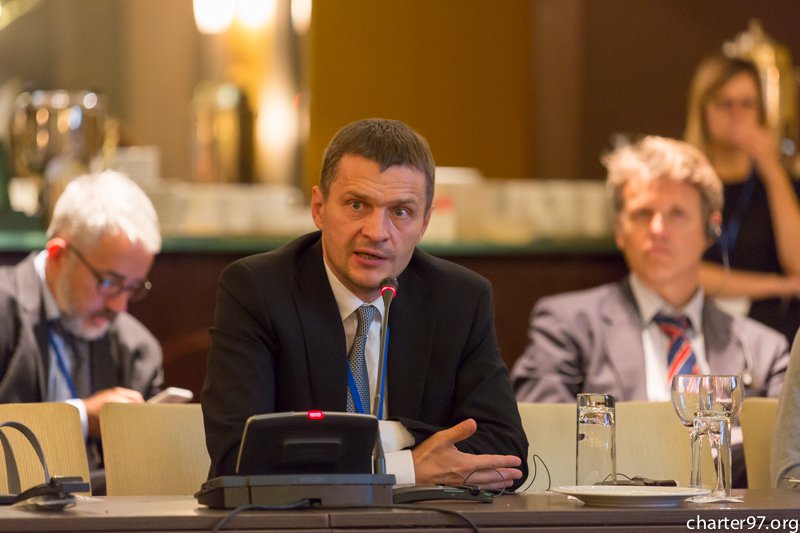
The Gang movie was shown at the event, which tells a story of enforced disappearances in Belarus. Director Raisa Mikhailovskaya told those present how it was created.
"Belarusian Documentation Centre has been collecting documents and information on human rights violations in Belarus. One of the priority activity are the cases involving the disappearance of political opponents of the authorities. We raise this issue at the national and international level. In 2014, the Belarusian Documentation Center created a documentary "The Gang." We met with witnesses of these events, went around the world - we shot in Germany, Russia, Cyprus. The film is not subjective. The viewers are supposed to make their own conclusion, we only show and tell. The main purpose of the film was to remind the public about the unsolved problems in Belarus," she said.
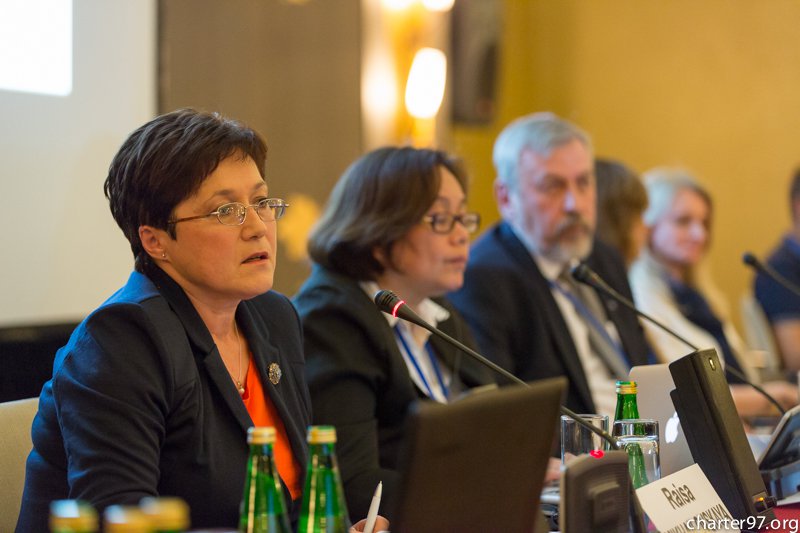
The discussion was also attended by Senior Director for Human Rights and Democracy at the Institute of McCain David Kramer, who this year led the US delegation at the OSCE Conference on the Human Dimension.
"We need to collect documentary evidence of crimes related to violation of human rights. This is the most important issue in terms of the principles of the OSCE, so it is important that today we can see the film, which provides information on enforced disappearances in Belarus," he said.
